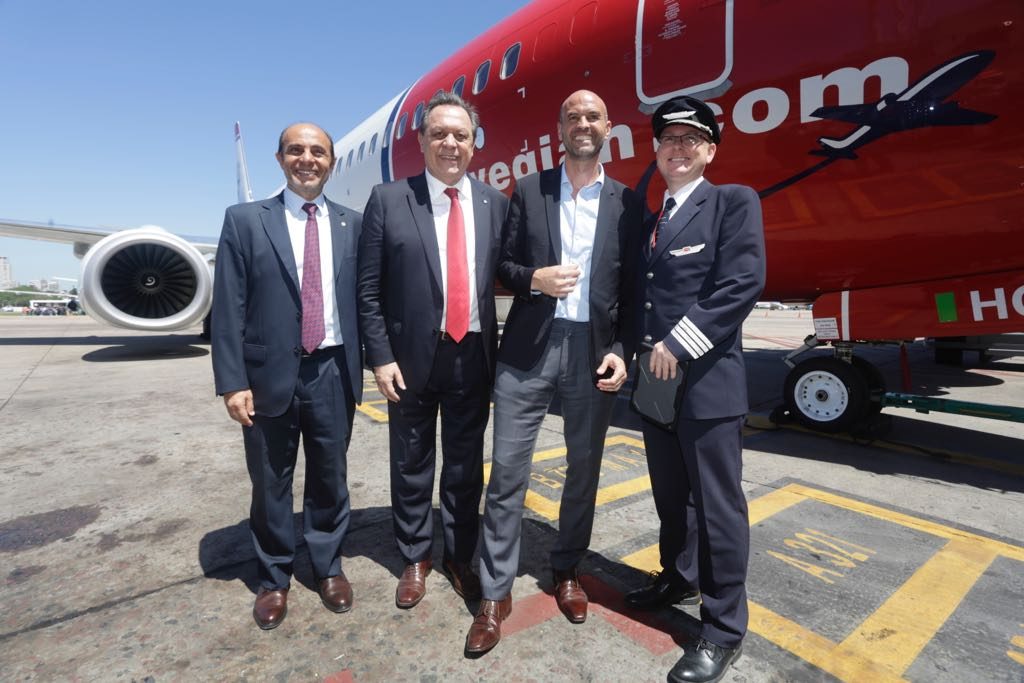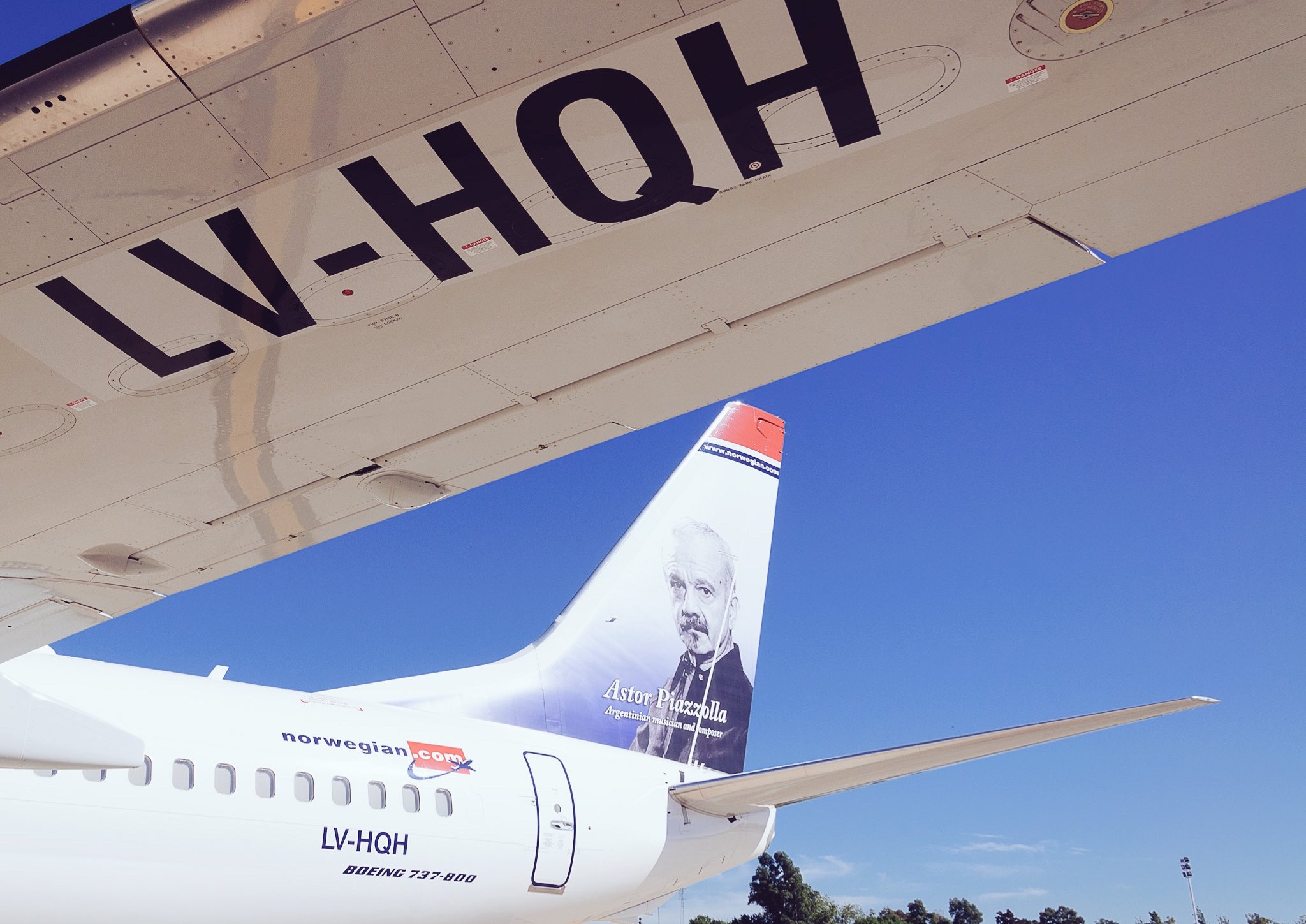Norwegian Air Argentina officially inaugurated its operations in the country yesterday when the carrier’s maiden flight, DN6022 took off from Buenos Aires bound for Córdoba. The flight comes just 10 months after Norwegian finally won an air operators certificate from Argentina’s National Civil Aviation Administration.
In addition to Córdoba, Norwegian Air Argentina will initially connect Buenos Aires with Mendoza, Bariloche, Iguazú, Neuquén and Salta. The first day of operation saw Norwegian operate just six flights but within 12-months, the airline plans to fly 246 sectors a week, transporting 2.2 million passengers.
Norwegian will be continuing its relationship with Boeing for its Argentine operations, utilising an all 737 fleet of single-aisle aircraft. The airline says it plans to have between 10-15 737-800 aircraft in the fleet by the end of 2019.
At present, Norwegian has a rather modest number of 120 employees working in Argentina but intends to recruit up to 230 more staffers, including cabin crew within the next 12-months. As it stands, Norwegian isn’t actively recruiting cabin crew in the country but you should expect the application process to open again soon.
Norwegian has rapidly expanded over the last few years, moving into a number of domestic markets across Scandinavia as well as Spain. The airline has seemingly broken the mould by making an apparent success of low-cost long-haul air travel, and while Argentina might not seem like the most logical next step, there’s good reason why Norwegian is chosen the country.
Norwegian’s entry into the Argentinian domestic market has been made by possible by the government’s new approach to aviation – a plan to deregulate the market and open up the sector to low-cost airlines has been called an “opportunity to tear down the idea that flying is a privilege” by the country’s Minister of Transportation Guillermo Dietrich.

“This is a historic day for Argentinean aviation,” Dietrich said yesterday.
“One of the largest airlines in the world, Norwegian, joins our air transportation today. An airline that is investing in our country, creating new jobs— trusts our pilots, cabin crew, mechanics and overall our people.”
Recent research suggested that Argentina is one of the world’s most underserved air travel markets in the world. Analysts claim the market could easily double or even triple in size by simply deregulating commercial aviation.
As an example, at present, there are around 50 to 60 million bus passengers a year who are travelling long distance routes which would be better served by air travel. A move to end minimum air travel ticket pricing will allow airlines to better compete and offer lower, more affordable prices for consumers.
Norwegian recently started flying between London and Buenos Aires and claims Brazil will soon see significant expansion.




